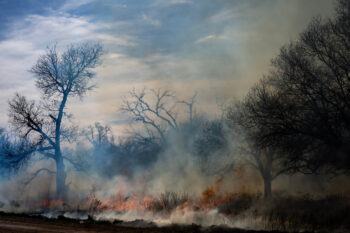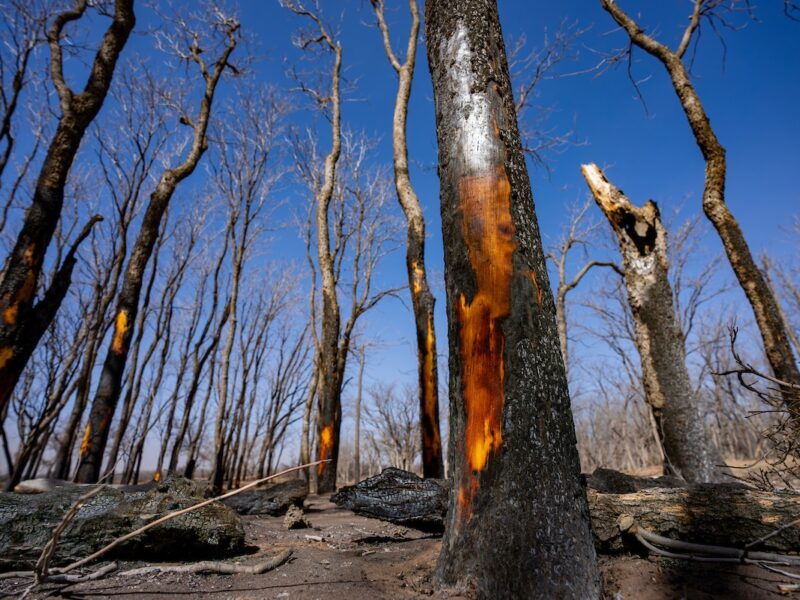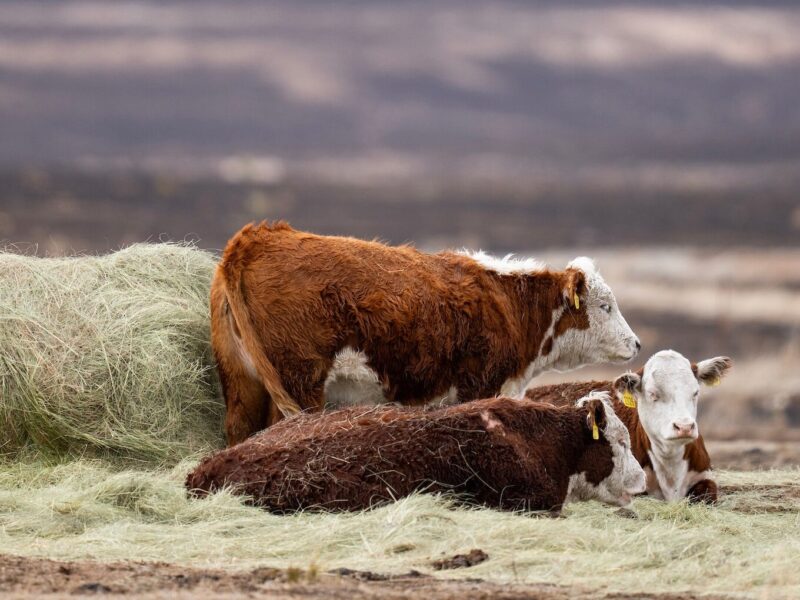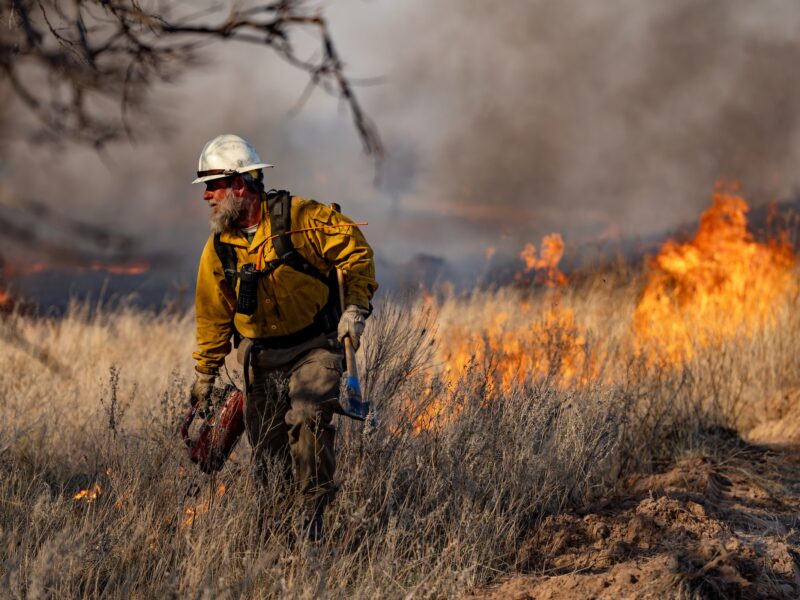Texas A&M Forest Service Urges Preparation As Extreme Wildfire Danger Increases

Critical fire weather conditions are expected to be widespread in the Texas Panhandle March 14 near Amarillo, Borger, Canadian, Childress, Lubbock, Pampa and Perryton, according to the Texas A&M Forest Service.
High winds, above normal temperatures and low humidity will align with dry grass vegetation across the area, possibly resulting in large wildfires that are difficult to control.
A Southern Plains Wildfire Outbreak may develop under these conditions. Any wildfire that ignites in dry grass could have forward rates of spread up to 3-5 miles per hour. Typically, the forward progress of wildfires is not stopped until the fire burns into a large barrier, such as an agricultural field or heavily grazed area.
Evacuation Preparations
Evacuations may be necessary under these conditions. The Texas A&M Forest Service urges Texans to have an evacuation plan that can be used during a wildfire or other disasters.
“With recent wildfire activity and wildfire potential, Texans should prepare to evacuate at any moment,” said Wes Moorehead, Texas A&M Forest Service fire chief, Bryan-College Station.
When planning for an evacuation, consider the needs of every person and animal in your home. Be sure to update your plan regularly to include seasonal changes, the needs of children as they grow and any updates to insurance or medications.
“Don’t wait for an emergency to occur to start planning for it,” Moorehead said. “Be informed about the risk in your area, monitor conditions, stay vigilant for text alerts and ensure that you are prepared.”
Some tips to help get started in your evacuation planning:
- Assemble a Go Kit that meets the needs of all family members and start with the five P’s:
- People and Pets – Plan for the whole family, including pets and livestock.
- Prescriptions – Bring extra medication, eyeglasses, hearing aids and medical equipment including necessary batteries and power cords.
- Papers – Include copies of insurance information, phone numbers and other important documents.
- Personal needs – Pack personal items including clothes, food, water, toiletries, first aid kit, cash, computers/tablets, phones, chargers and sanitation supplies.
- Priceless items – Include items of sentimental value, such as pictures, heirlooms and irreplaceable memorabilia.
- Identify at least two evacuation routes, in case one is impacted, and save them in a navigation system or phone.
- Practice your evacuation plan. Locate and load your Go Kit into your vehicle and drive your evacuation routes. Include all individuals at your home in this drill and ensure they are confident with the plan.
- Work with your local emergency responders. Learn what to expect, how you will be notified during an emergency and determine if you need to register for a notification service.
For more about wildfire potential, visit: https://tfsweb.tamu.edu/CurrentSituation/.





